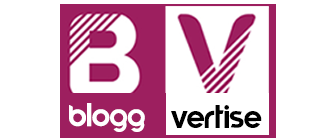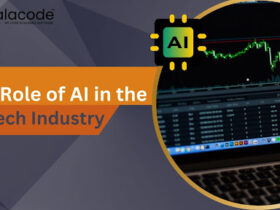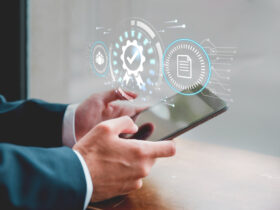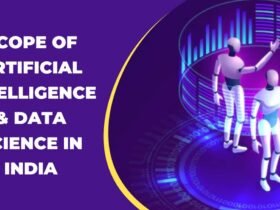Healthcare industry relies on innovative technologies to provide care and treatment to patients. However, due to the industry’s complex nature, coupled with stringent regulations and high levels of responsibility, the latest technologies have to be fully developed before this domain can adopt them. Yet, the healthcare industry has transformed drastically, and it is now seeking newer and more innovative technologies to help tide over the vulnerabilities brought to light by the pandemic.
In 2018, the global healthcare Internet of Things market size was valued at $147 billion, and this number is expected to see a CAGR of nearly 20% during the 2019 – 2025 forecast periods. And in another survey, it was reported that close to 87% of healthcare organizations worldwide would adopt some IoT services by 2019.
The Internet of Things has quickly transformed itself into a user-centric, efficient and coordinated system that can offer advanced mHealth solutions to patients. With more adoption of IoT in healthcare app development, it is possible to develop highly integrated systems, reduce treatment and care costs and ensure medical facilities are ubiquitous. Intelligent internet-connected devices are becoming the game-changer for the healthcare industry as they are offering significantly reduced treatment costs, improved service delivery and enhanced personalized treatment.
While this new technology is still in its infancy, and the industry has not yet leveraged its full potential, it is clear that the healthcare industry is poised to see successful mHealth solutions in the future. Before we further discuss the benefits of IoT in healthcare, let’s take a brief look at IoT in general and why the healthcare domain should invest in this innovative technology.
What is IoT?
You can think of IoT as an internet-connected device or a network of devices that allows information to be transferred in a continuous stream to various points in the supply chain. Since the data is collected and transmitted in real-time, it helps in accurate and time-sensitive decision-making.
By employing IoT in healthcare app development, patients can stay connected with their care providers even after the consultation with the doctor is over and after their discharge from the hospital stay. Several applications are available, such as sleep monitoring apps, blood sugar monitoring, and transmission of other vital health parameters.
IoT Solves Some of the Challenges Faced by Healthcare Industry
- Patient treatment and medication adherence is always a pain point in the healthcare sector.
- Treatment costs can be overwhelming for some patients.
- Not keeping up with doctors’ appointments is another hindrance for the proper delivery of service
- Patients don’t usually remember all their symptoms and health parameters when they consult with their doctors.
- Patient administration and hospital management can take up much of doctors’ crucial time.
- Remote monitoring of patients is again a tough ask for hospitals and doctors.
- Data collection and report analysis can have discrepancies that increase the workflow and the risk of errors.
Benefits of IoT in the Healthcare Industry
Let’s now look at some of the benefits of IoT that help the healthcare industry find crucial solutions to its challenges.
1. IoT Increases the Implementation of Preventive Medicine
Preventive healthcare will get a serious boost thanks to the adoption of IoT in healthcare app development technologies. It will help provide appropriate treatment and medication to patients with chronic conditions. Using the predictive capabilities of IoT, it will be possible to provide personalized and preventive medicine and forms of care to patients.
IoT allows doctors to analyze the collected information from the IoT devices and devise appropriate treatment plans without clearly manifesting the symptoms. Implementing IoT along with AI and data analytics can go a long way in predicting unusual medical behaviors or health parameters. Every major healthcare app development company is keen on developing IoT-based applications that can send immediate alerts to doctors and care providers, and proactive action can be taken.
2. Real-time Remote Monitoring of Patients Health
Telemedicine and telehealth help doctors in treating patients in remote locations. Patients in remote areas – be it urban or rural – can undertake routine tests and send real-time reports to their concerned doctors without consulting the professional face-to-face.
Remote monitoring of patients is beneficial in the diagnosis, management, and monitoring of patients via IoT. It is especially helpful in treating elderly patients or patients with chronic conditions. Physicians can now keep a close eye on a patient’s medical needs. They can intervene without wasting crucial time if the states require it.
3. Enhanced EHR Systems
Electronic Health Records haven’t always been a part of the healthcare system. Most hospitals, labs, primary health centers, and other care facilities maintain an independent EHR system – which is not integrated with a centralized health repository. Centralized health records with information collected from all monitoring devices can help doctors, care providers, and nurses provide effective treatment to patients.
The present EHR system wasn’t designed with IoT in mind. However, moving towards a real-time data collection system – such as wearables and smartwatches – will be critical in providing patient-centric treatment.
4. Improves Hospital Administration and Management Systems
The digital transformation of the healthcare industry has made hospital management and administration more streamlined. The IoT can collate all hospital-related information such as availability to doctors, nurses, beds, patients, and other equipment.
With IoT and big data, any healthcare app development company can create applications that can efficiently allocate equipment, manage inventory and dispatch professionals to crucial locations.
5. Drastic Decrease in Errors and Miscalculations in Diagnosis
Doctors spend much of their time diagnosing conditions, but it might take less than a few minutes with IoT. Moreover, doctors need absolutely correct information to make the right decision concerning a patient’s health. However, most patients forget their initial symptoms or health parameters by the time they make their appointments. With IoT mHealth solutions, it is possible to eliminate inaccurate diagnoses based on inaccurate reports.
Good Read: Why AWS Is Important For business
Wrapping Up
The future of IoT in the healthcare industry is quite promising. Yet, the full potential of this innovative technology hasn’t been utilized by any industry. However, we can be sure that every significant healthcare app development company is looking for ways to improve the quality of health and treatment available to patients.
Author bio: Jamie Joyner is content cum digital marketer at Solution Analysts, a leading fintech App Development Companies. She is an avid reader and likes to remain updated for technological advancements in the domains of web, mobility, IoT, and emerging technologies. Her articles are informative and interesting at the same time as he expresses insightful thoughts clearly.







Leave a Reply